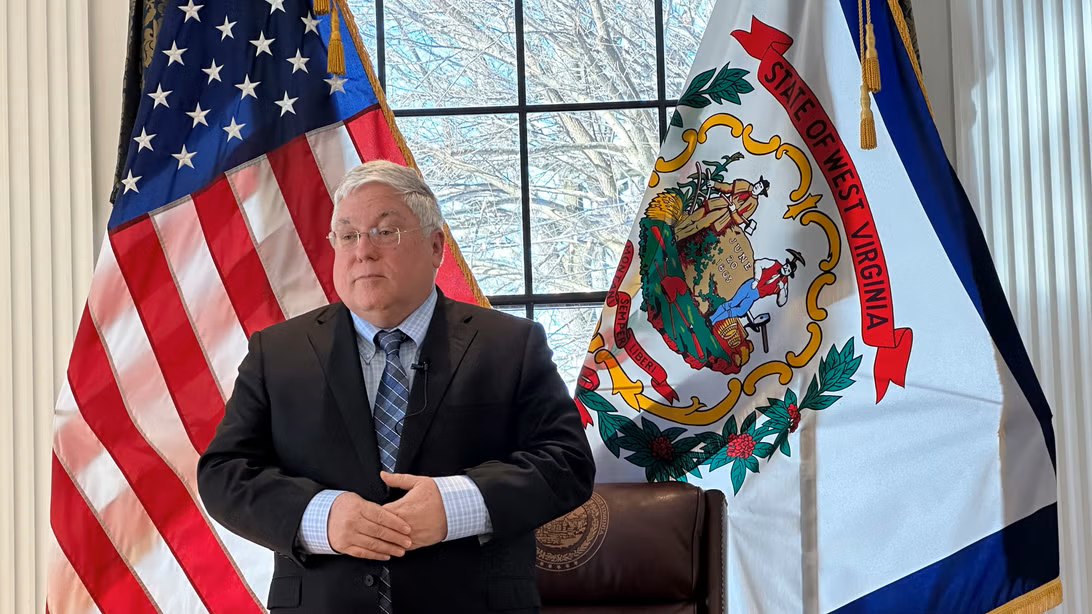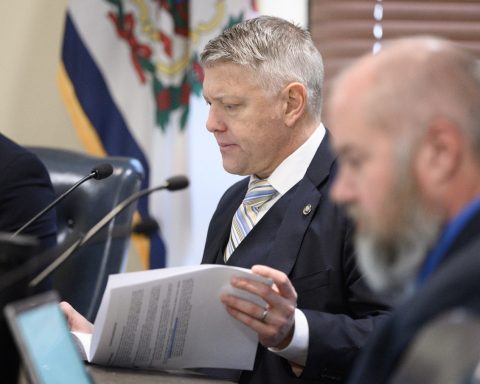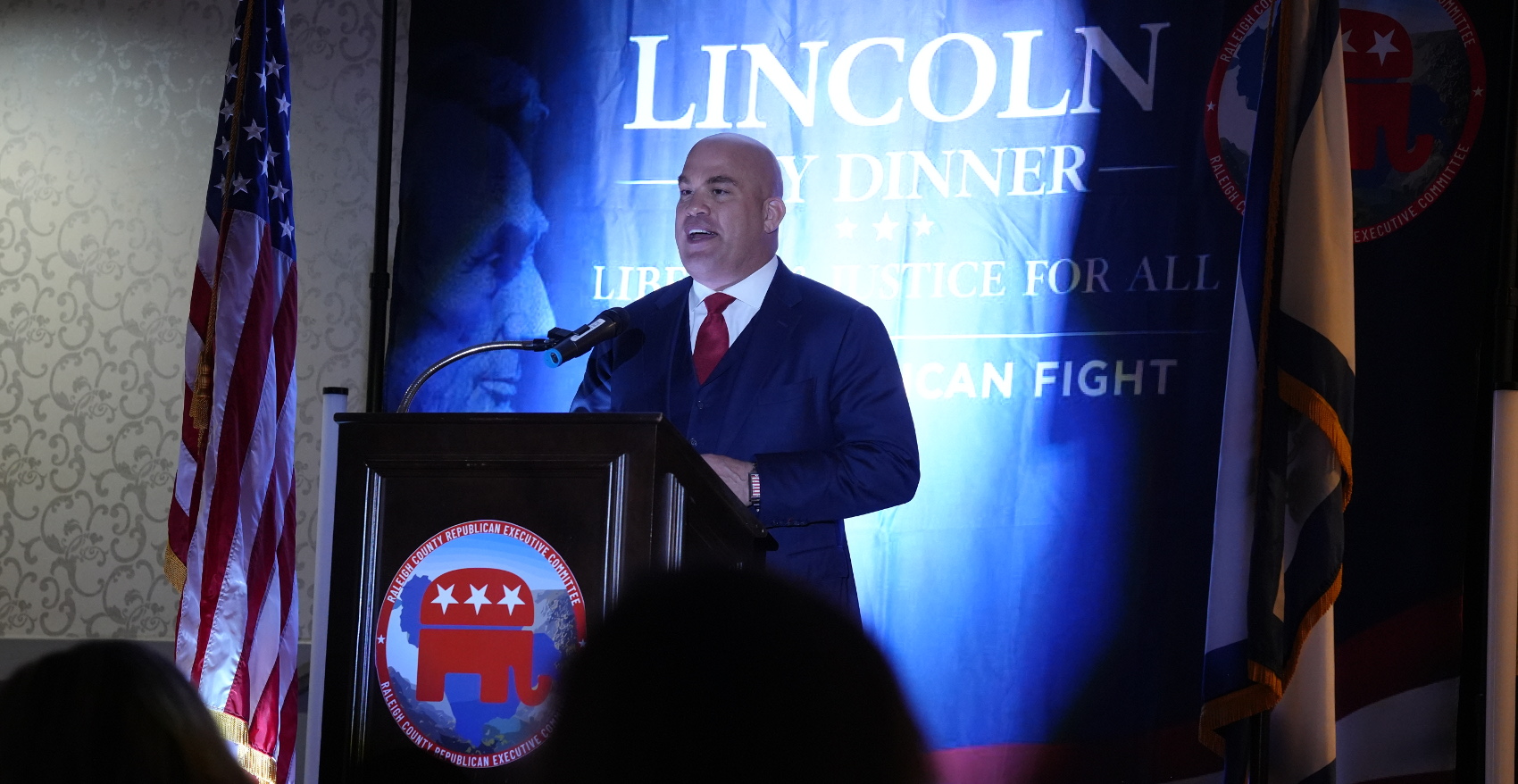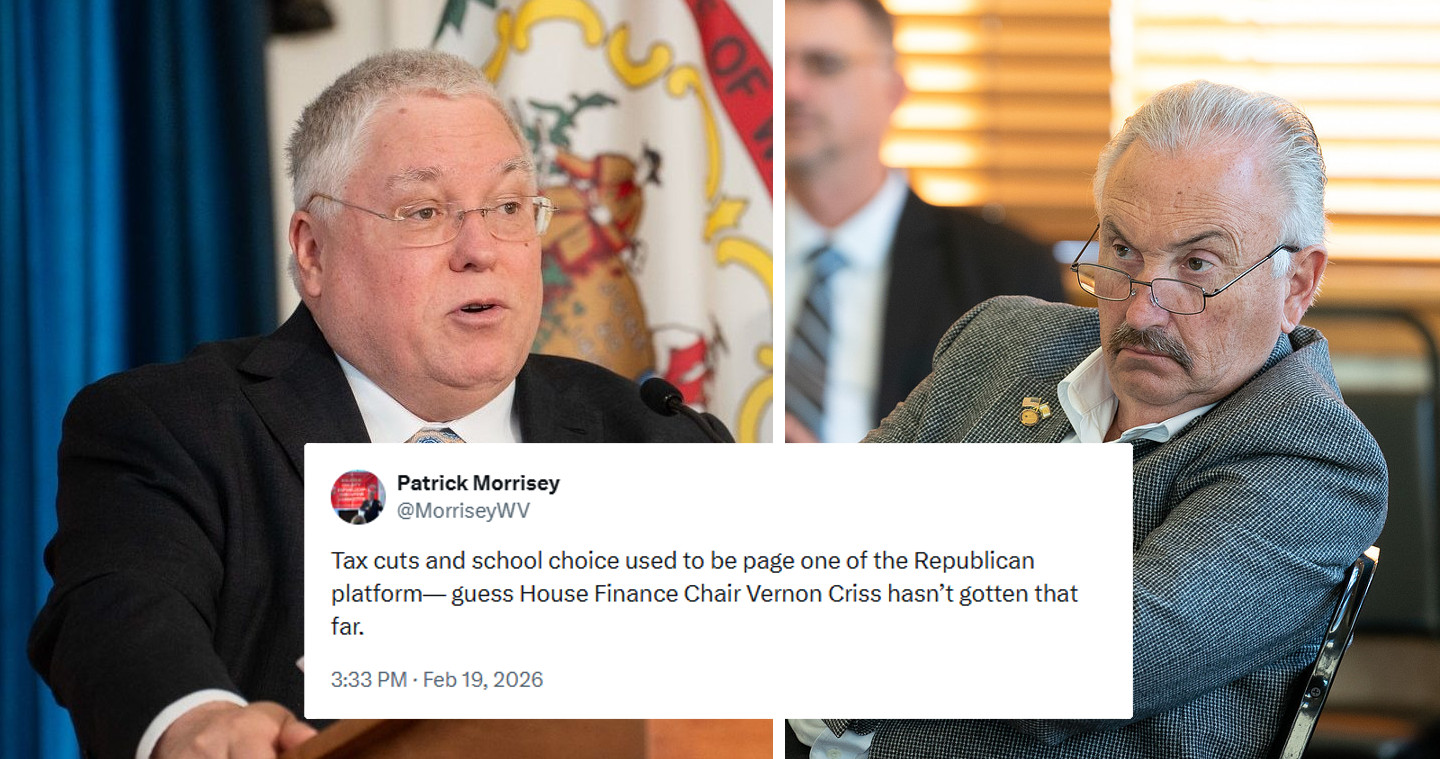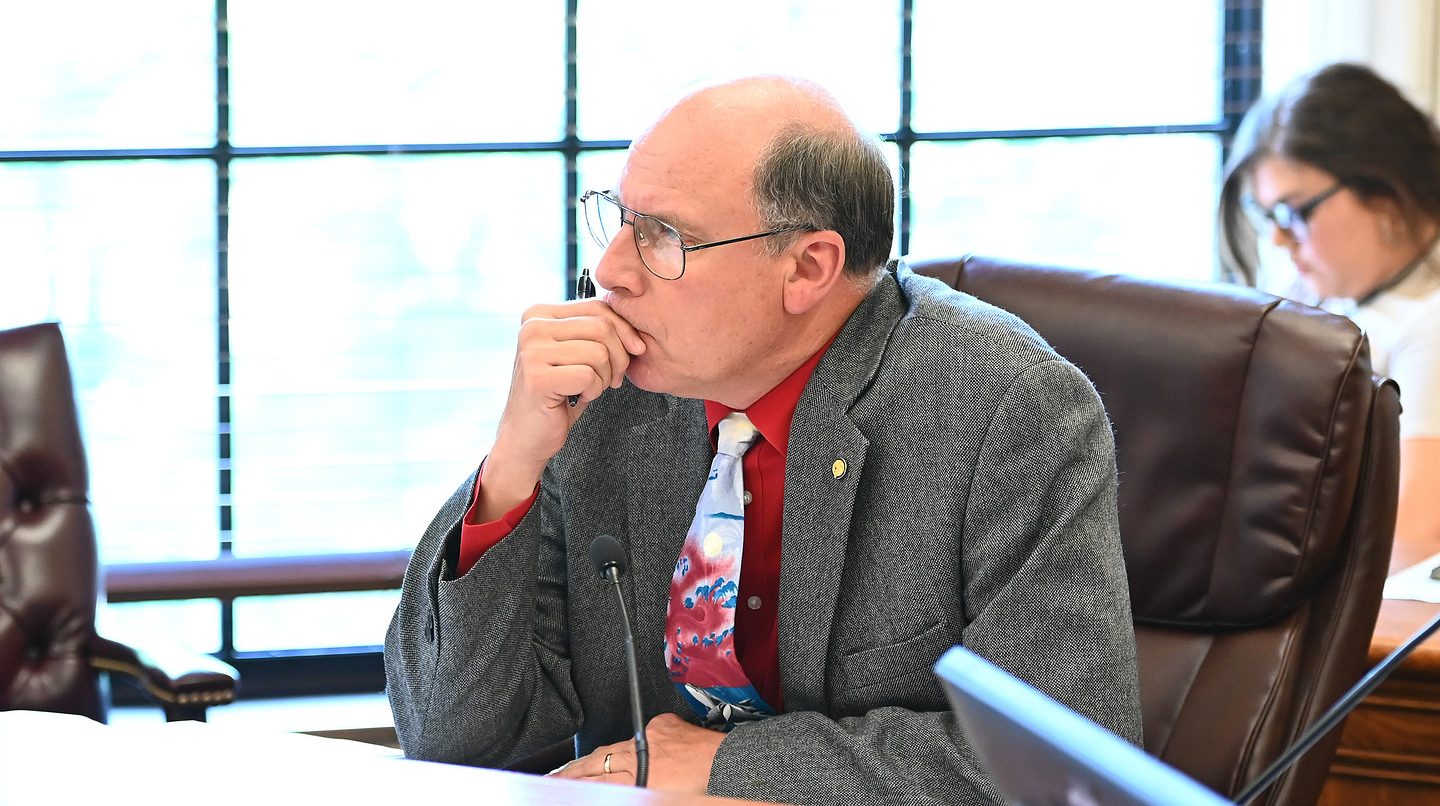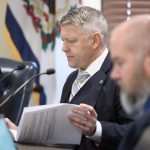CHARLESTON — Gov. Patrick Morrisey expressed this week that he faces a substantial fiscal challenge. Morrisey’s projections show a looming $400 million budget shortfall for fiscal year 2026.
During his second in-person press conference on Thursday, held at the Governor’s Reception Room in the State Capitol, Morrisey outlined the fiscal reality he inherited on his first day in office. According to Governor Morrisey, the state is facing a significant deficit, with the gap projected to widen in the coming years.
“It’s one of the most important priorities for any governor, and for the state,” Morrisey said, underscoring the gravity of the situation. “As of today, we’re looking at a projected deficit of around $400 million, and unfortunately, that number is expected to grow in the future. This is where we stand on Day 1.”
Morrisey, alongside Department of Revenue Secretary Eric Nelson and Director of Budget Mike McKown, is tasked with crafting the fiscal year 2026 budget, which must be presented to the West Virginia Legislature by February 12. Despite the daunting deficit, Morrisey expressed optimism, vowing to explore every avenue to balance the state’s books.
“I’m committed to looking at all options to make sure we have a balanced budget. We’ll be putting West Virginia first, prioritizing growth, education, and the needs of our citizens,” he said.
The projected budget shortfall is tied to a combination of factors, including rising education costs, and increasing obligations for the state’s Public Employees Insurance Agency. These long-term financial pressures have compounded the deficit, which is exacerbated by a reliance on one-time revenues to cover ongoing expenses.
“There’s a structural deficit that’s been built into the baseline,” Morrisey explained. “We’ve seen a heavy reliance on one-time revenue sources paying for long-term commitments. That’s a major part of the problem we’re going to address.”
While Justice had previously assured that the budget handed to Morrisey would not require cuts or tax hikes to balance, the former governor acknowledged that any future budget would be shaped by the new administration’s decisions.
“The next budget will surely depend on decisions that are made by the next folks that come in and the Legislature,” Justice said in a December briefing.
Despite the tough financial forecast, the Morrisey administration has already taken steps to address the situation. Executive orders issued earlier this week require state agencies to review expenditures of $100,000 or more and identify areas of waste or inefficiency.
Additionally, Morrisey announced plans to consolidate certain state departments, including merging the Department of Commerce and the Department of Economic Development, as well as combining the Department of Arts, Culture and History with the Department of Tourism. These changes will require legislative approval before they can take effect.
“We’ve already taken steps to tighten belts and reduce spending,” Morrisey said. “I remain optimistic that, despite the big spending we’ve seen in recent years, West Virginia can still be that shining state in the mountains.”
As the state begins its 2025 legislative session, all eyes will be on Morrisey’s proposed budget and his ability to navigate the financial challenges ahead. The road to balancing the books will likely be a bumpy one, but Governor Morrisey is determined to ensure that West Virginia’s future is stabilized.

